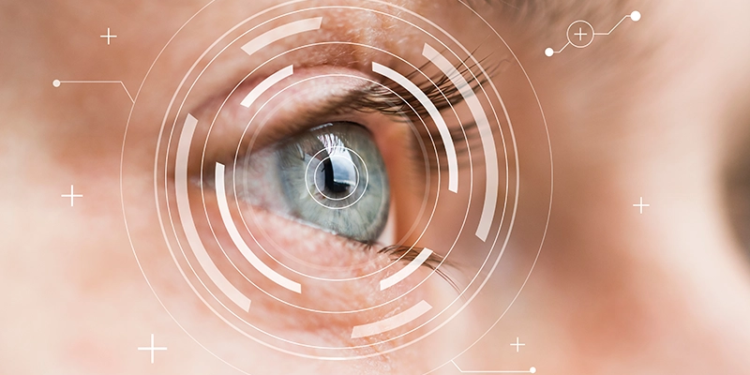
The prosthetic skin attached to a prosthetic hand.
Photograph courtesy of Jaemin Kim, Seoul National University, Korea.
Researchers in South Korea and the United States have developed an electronic prosthetic skin made with ultrathin, stretchable silicon that can mimic the capabilities of natural skin and may one day be used on prosthetic devices. Studied on a prosthetic hand, the silicon skin can detect pressure, temperature, and humidity, and can approximate the temperature of human skin. While silicon is normally brittle, the new skin uses sensors made of wave-shaped silicon “nanoribbons” that allow the sensors to stretch without breaking.
The scientists used motion-capture cameras to study how a natural hand moves and stretches and, in areas of the hand where skin stretches less, made the prosthetic skin more sensitive. For areas where the prosthetic skin needs to stretch more, they focused on improving the range of measurable data. “If you have these sensors at high resolution across the finger, you can give the same tactile touch that the normal hand would convey to the brain,” contributing researcher Roozbeh Ghaffari, PhD, told the MIT Technology Review. According to the study, published December 9 in the journal Nature Communications, the material has up to 400 sensors per square millimeter, making it the most sensitive prosthetic skin to date.
The electrodes in the artificial skin stimulate nerves to relay data from the sensors to the brain. In experiments on rats, the researchers were able to demonstrate that the electrode array could transmit data to the brain about the pressure of a touch. The usefulness of sensors is affected by their sensitivity and the range of data they can measure. “These two [factors] have an offsetting relationship to each other-high sensitivity usually results in a small range of measurements,” author Dae-Hyeong Kim, PhD, told
Live Science. According to the Live Science report, after researchers laminated the electronic skin onto a prosthetic hand, the skin and hand could perform complex operations and accurately relay data to the brain about shaking hands, tapping keyboards, grasping baseballs, holding hot or cold drinks, touching dry or wet diapers, and touching other people.
In the study, the authors note that the skin is not yet advanced enough for commercial production.
Editor’s note: This story was adapted from materials provided by the MIT Technology Review.




